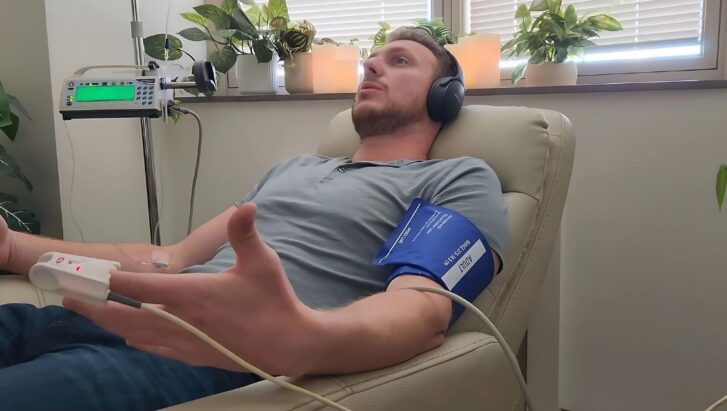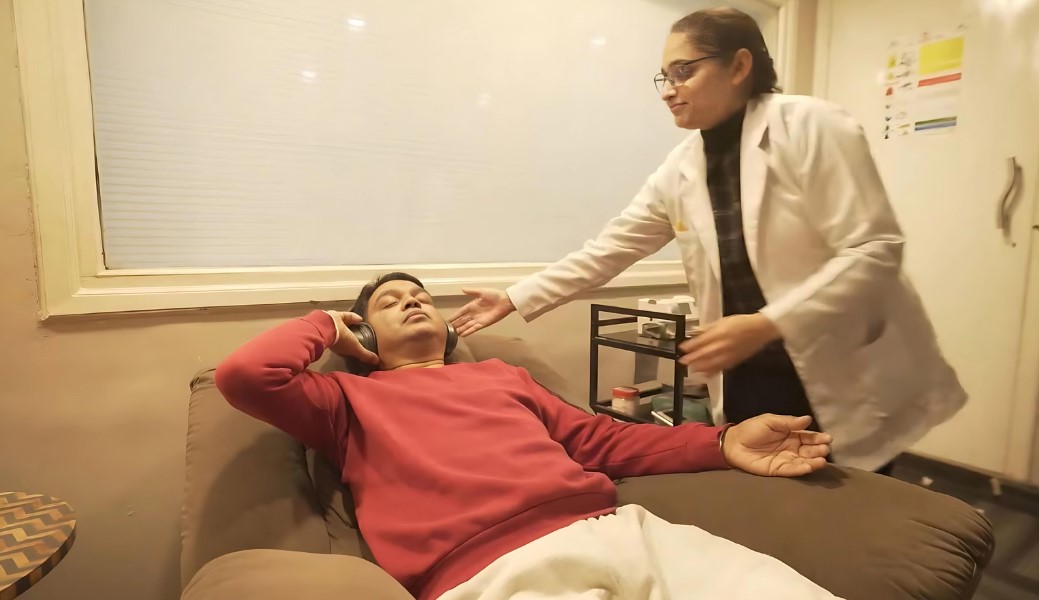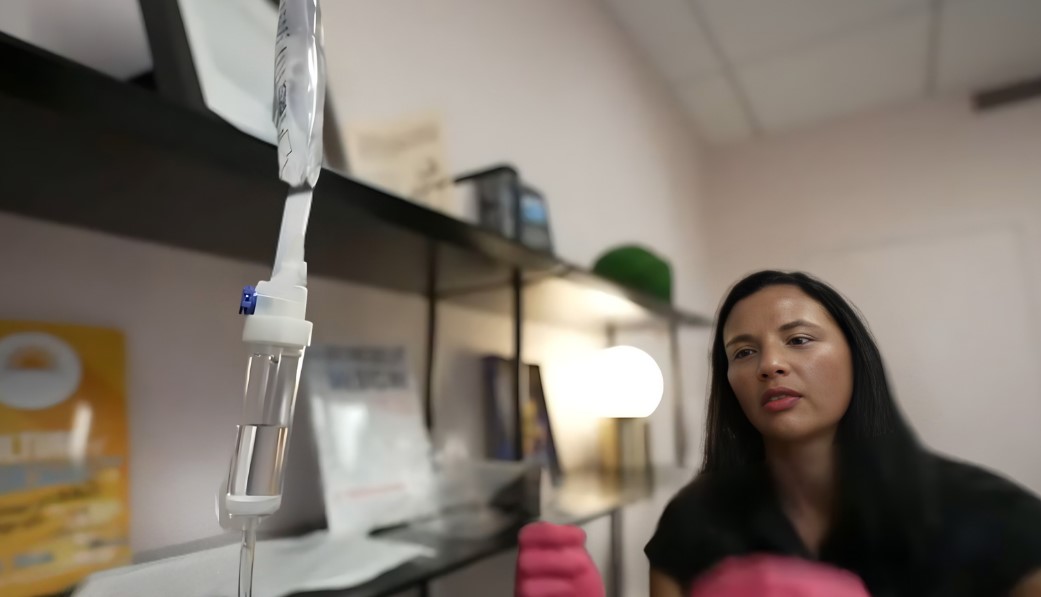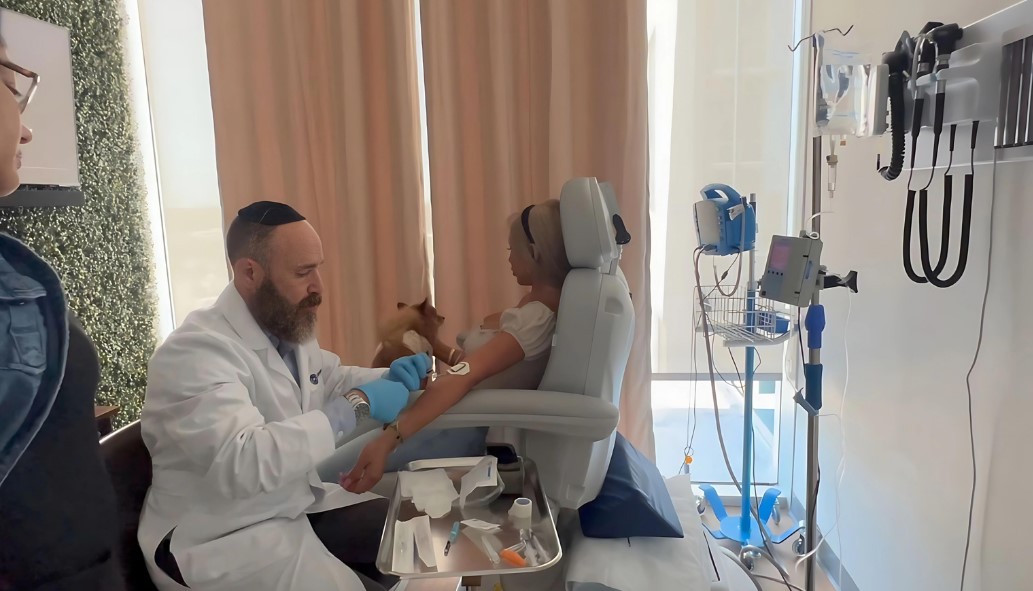Ketamine’s potential as a treatment for depression was recognized after its initial approval by the FDA in 1970 for anesthesia during surgery. It was later found to have rapid-acting antidepressant effects, leading doctors to explore its use in treating depression.
7.1% of adult Americans, or 17.3 million people, suffer from serious depressive disorders. So it’s hardly surprising that a lot of people are trying to find out how successful ketamine is in treating this condition.
In the article, we will answer this question and help you understand how ketamine works in treating depression.
Key Takeaways
- According to one study approximately 70% of patients with TRD report a notable improvement in their symptoms following ketamine infusions.
- A study from Mass General Brigham reports ketamine has a success rate of 55% in treating depression.
- Ketamine acts on the NMDA (N-methyl-D-aspartate) receptors which are involved in mood regulation.
- Benefits of using ketamine for treating depression are quick system relief, reduction of suicidal thoughts, improved response in treatment-resistant cases, etc.
What is the Success Rate of Ketamine Therapy?
Ketamine therapy’s success rate in treating depression is compelling, particularly among those with treatment-resistant depression (TRD). Studies and clinical trials have reported that approximately 70% of individuals with TRD experience a significant reduction in symptoms after receiving ketamine infusions.
Another study from Mass General Brigham discovered that 55% of patients treated with ketamine saw a long-lasting improvement in their depression symptoms without experiencing any significant side effects.
Also, one meta-analysis highlighted that ketamine produces a rapid antidepressant effect in patients with unipolar and bipolar depression, with effects noticeable within 24 hours post-infusion.
What is Ketamine?
Ketamine is a medication primarily used for starting and maintaining anesthesia. It induces a trance-like state while providing pain relief and sedation. Beyond its anesthetic capabilities, ketamine has unique properties that make it an effective treatment for depression.
Unlike conventional antidepressants that target the brain’s serotonin and noradrenaline systems, ketamine acts on the NMDA (N-methyl-D-aspartate) receptors, part of the glutamate pathway, which is believed to be directly involved in mood regulation and neuroplasticity.
How Ketamine Helps in Treating Depression?
The precise mechanism by which ketamine exerts its antidepressant effects is still under investigation. But, it’s known to rapidly increase the levels of glutamate, which is an effective neurotransmitter that alter mood, cognition, and mental processes.
Ketamine’s impact on the NMDA receptors plays a crucial role in this process. By blocking these receptors, ketamine produces a rapid increase in glutamate, as we mention. This surge fosters new neural connections and may help to reverse the neural damage caused by chronic stress and depression. This effect is something traditional antidepressants cannot achieve quickly or may not achieve at all for some patients.
The story of Kim Crespo, who underwent treatment for six weeks in 2012. verify the effectiveness of ketamine.
Kim Crespo: Almost immediately, my mind became clear after my treatments because when you’re going through depression your mind is in a fog. I was alert and no longer crying or emotional all the time. It was truly a miracle drug for me.
What are the Benefits of Ketamine?
Ketamine therapy offers several advantages, particularly when other treatments have failed:
1. Rapid Symptom Relief
One of the most significant benefits of ketamine therapy is its ability to provide rapid relief from depressive symptoms. Unlike traditional antidepressants that may take weeks to become effective, ketamine can produce noticeable improvements within hours of administration.
Studies indicate that up to almost a third of patients with treatment-resistant depression experience a reduction in symptoms within 24 hours of receiving ketamine therapy.
2. Reduction in Suicidal Thoughts
Ketamine has been shown to rapidly decrease suicidal ideation, a critical benefit for patients in crisis. Research demonstrates a significant reduction in suicidal thoughts within a day of treatment for many patients, providing an essential option in emergency psychiatric care.
3. Sustained Effects with Maintenance Therapy
While the initial effects of ketamine are temporary, maintenance treatments can extend these benefits. Patients may experience sustained improvements in mood and function for weeks to months after completing a series of treatments, with ongoing sessions helping to prolong these effects.
4. Improved Response in Treatment-Resistant Cases
Ketamine therapy offers hope for individuals who have not responded to traditional antidepressants. Approximately 50-70% of patients with treatment-resistant depression respond to ketamine.
5. Cognitive Benefits
Emerging evidence suggests ketamine may have cognitive benefits, improving aspects of memory, attention, and executive function in some individuals. This is particularly relevant for depression, which can impair cognitive processes.
6. Broad Therapeutic Potential
Beyond depression, ketamine shows promise in treating a range of psychiatric disorders, including anxiety, PTSD, and bipolar disorder. This broad therapeutic potential makes it a versatile tool in mental health treatment.
FAQs
Related Posts:
- Depression vs. Manic Depression: Battle of the Moods
- The Benefits and Importance of a Support System - A…
- Is Ketamine a Psychedelic? Safe Use of Mental Health Drugs
- Art Therapy for Post-Traumatic Stress Disorder: The…
- The Role of Humanistic and Existential Therapy in…
- Humanistic Existential Therapy: A Journey Towards…
















